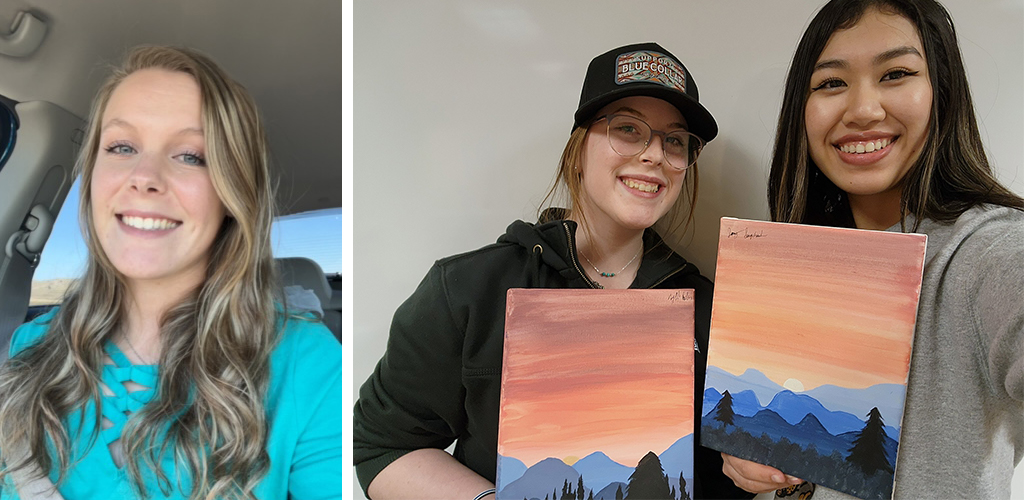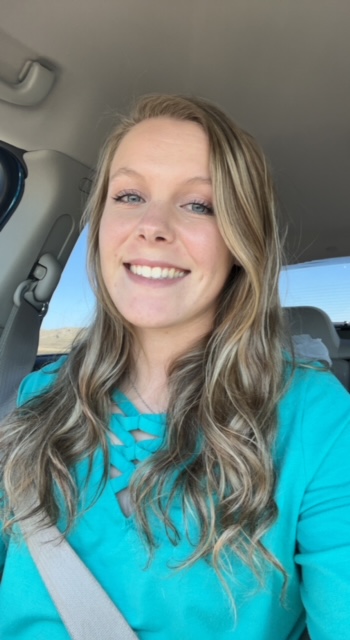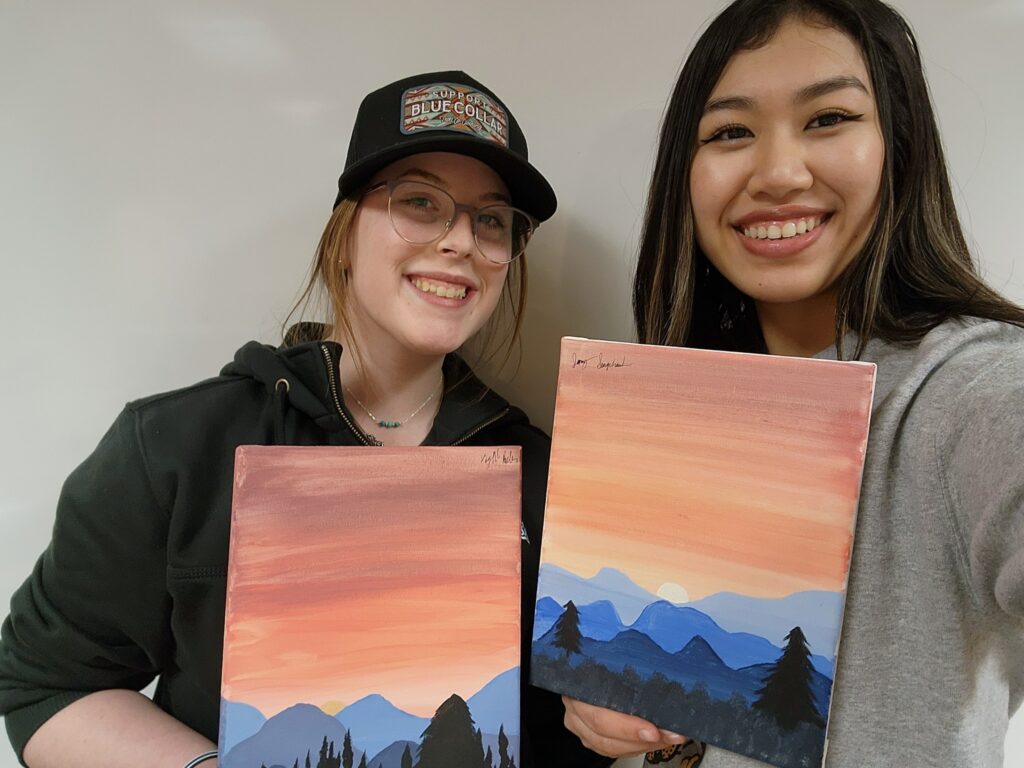
Lost&Found supports student programs at several higher education institutions across the state of South Dakota. The Peer2Peer Mentoring Program matches trained student mentors with students looking for a little extra support as they navigate college life. This past academic year, the Peer2Peer Mentoring Program was available at South Dakota State University, the University of South Dakota, Western Dakota Technical College, Black Hills State University, and South Dakota School of Mines and Technology. Lost&Found supported over 50 trained mentors and 61 mentees during the 2022-2023 academic school year.
Senior Prevention Program Specialist Carrie Jorgensen recently had an opportunity to speak with two mentors in the program.
Jae Hanks

Jae Hanks graduated this spring from South Dakota State University. Jae has been a mentor with Lost&Found for the past two years, and she has served on the leadership team of the SDSU Lost&Found Chapter.
Carrie: Why did you decide to become a peer mentor?
Jae: My roommate, Anna Stone, was a peer mentor and brought me along to a few Lost&Found meetings to introduce me to the club and the Peer2Peer program. After hearing about mentoring, I thought it would be a great way to give back! I knew that I had a hard time transitioning into college life and moving away from home and would’ve loved to have a mentor my freshman year. I was excited to be that mentor for someone else!
Carrie: Tell us about your experience as a peer mentor. What was it like to first meet your mentee?
Jae: It was definitely awkward at first to get to know my mentee and build a trusting relationship. However, within a couple weeks, I was able to build that connection and form a friendship with my mentee!
Carrie: What type of topics did you connect on?
Jae: The main topics were school, campus life, and surviving crazy class schedules. I am also a very physically active person so I was able to connect with my mentee about healthy lifestyle choices as well!
Carrie: What type of things did you do together?
Jae: We kept our meeting pretty simple and would usually grab food or a smoothie together. We had a couple meetings that we decided to turn into study sessions depending on when exams came up throughout the semester.
Carrie: What would you like students considering participating as a mentee to know about this program?
Jae: Don’t be afraid to open up to your mentors! It can be awkward, but mentors are mentoring because they want to be! This program is amazing if you’re willing to put a little time and effort into it!
Carrie: Why do you think this program is needed on college campuses?
Jae: I know as a freshman I was very overwhelmed with moving away from home, adjusting to college classes, and trying to make friends. This program helps ease that transition, introduces freshmen to more people, and gives them an opportunity to have a friend that can help with study tips, mental health tips, and anything else they may need. I would’ve loved to have this program when I was a freshman and I think it is an extremely beneficial option for any student to use!
Carrie: From your perspective, is there anything else you think sponsors of P2P Mentoring should know about the program?
Jae: I was in the program for two years, and the second year was already bigger than the first year I participated. This is a great program that I truly hope continues to grow and reach more students that need this program!
Jenny Sengchanh
Jenny Sengchanh is a returning mentor at South Dakota State University.

Jenny Sengchanh, right, and her mentee, Kaylah R., share art they’ve created.
Carrie: Why did you decide to become a peer mentor?
Jenny: I became a peer mentor because I remember feeling lost and overwhelmed when I got to campus. I wanted to be able to help out other students on campus and also advocate for them to take care of their mental health. College comes with a lot of changes, and it presents both positive and negative stressors in your life. Being a peer mentor gave me the chance to try and help someone out through this moment of their life.
Carrie: Tell us about your experience as a peer mentor. What was it like to first meet your mentee?
Jenny: I was super excited to meet my mentee for the first time. We met up in the student union and talked about our interests and goals for the semester, and then we established a plan of how frequently we wanted to meet up.
Carrie: What type of topics did you connect on?
Jenny: Some topics we connected on were changing our majors, getting used to dorm life, general classes, social/academic/work-life balance, and background and home life.
Carrie: What type of things did you do together?
Jenny: We went to different club meetings, did self-care activities like painting and journaling, talked about our goals and wants/needs in life, and grabbed lunch/dinner together.
Carrie: What would you like students considering participating as a mentee to know about this program?
Jenny: I want students who are considering participating as a mentee to know that this program is very flexible and helps you feel like you belong here on campus! Mental health can be a scary topic, but the mentors do go through training and have resources to help you out.
Carrie: Why do you think this program is needed on college campuses?
Jenny: This program is needed on college campuses because college can be stressful and is a moment in life where you are dealing with a lot of change.
Carrie: From your perspective, is there anything else you think sponsors of P2P Mentoring should know about the program?
Jenny: The events hosted by P2P and Lost&Found are great ways for the mentors/mentees to bond with each other and has really helped with different ideas of self-care activities to do!
Visit the Lost&Found Peer2Peer Mentoring Program page for more information.
